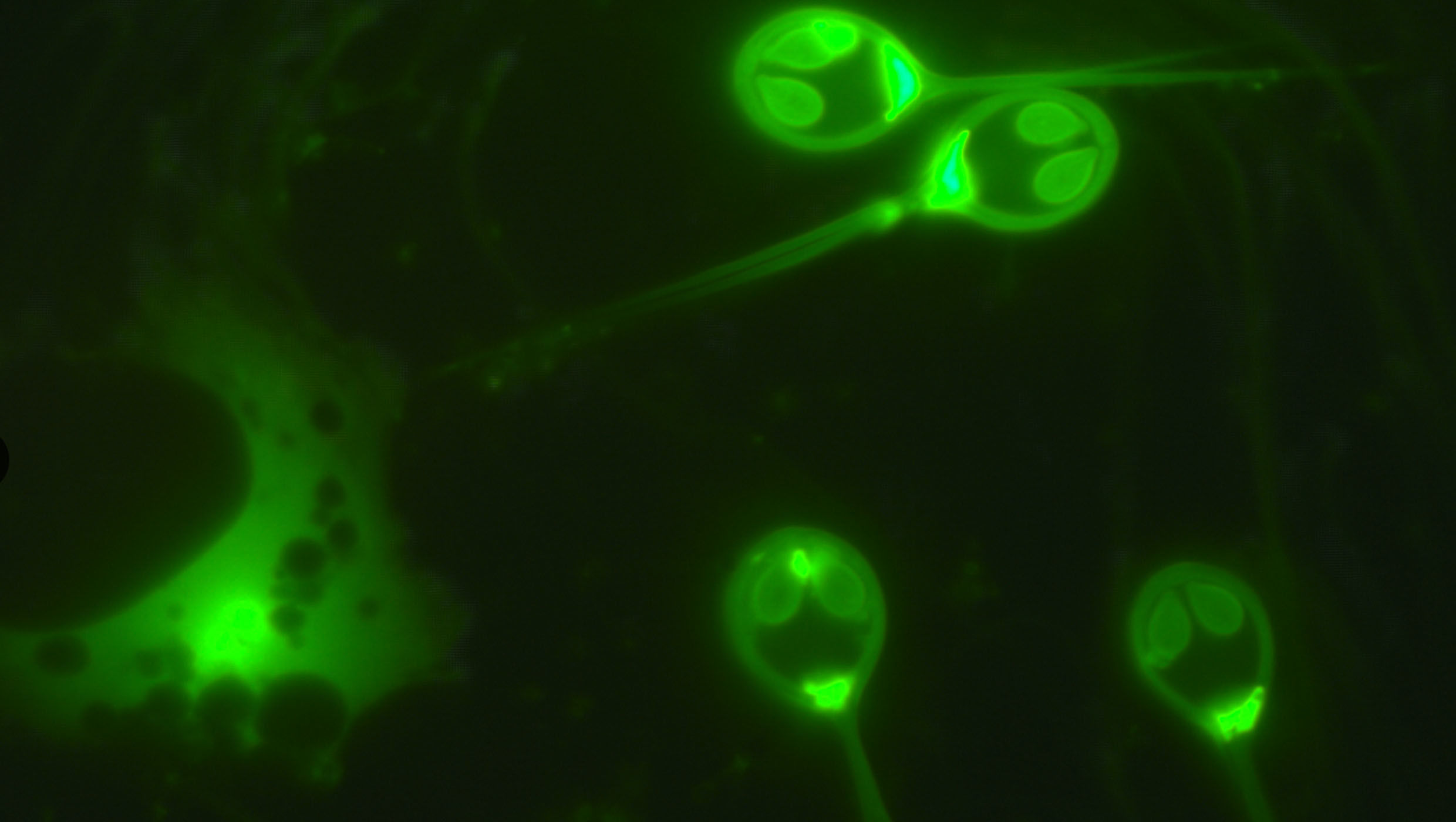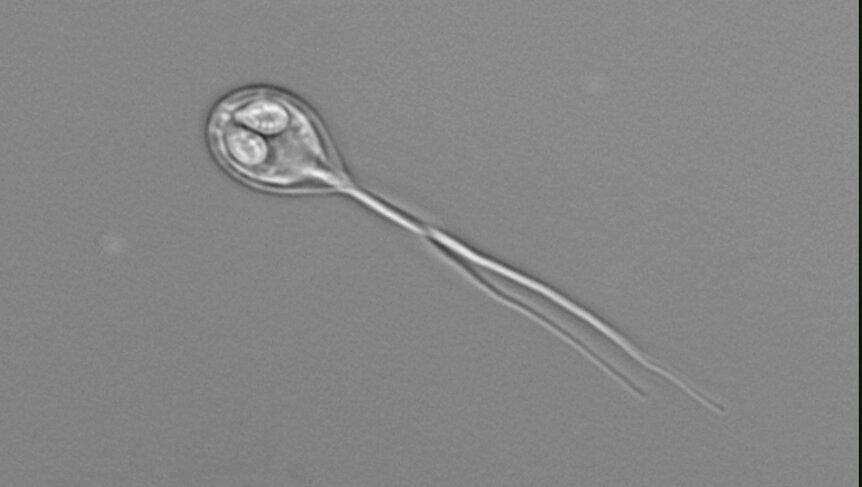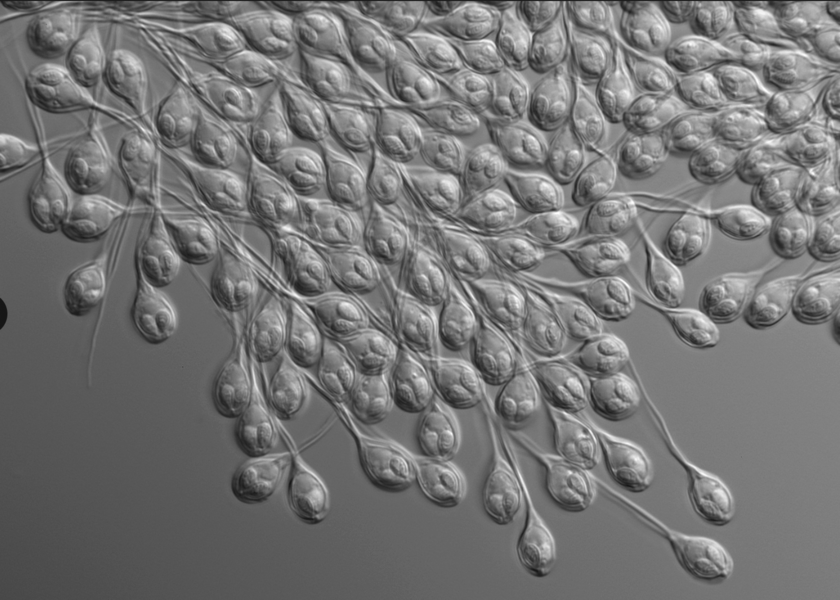Create a free profile to get unlimited access to exclusive videos, sweepstakes, and more!
This weirdo is the only multicellular lifeform on Earth that doesn't need oxygen

Oxygen has been mandatory for every organism with more than one cell that intends to survive on this planet — until now.
There is actually a eukaryote, or multicellular organism, crawling on Earth that is just as alive as the rest of us, but doesn’t need oxygen to keep being its bad self. This is a surprising contrast from prokaryotes that also don’t need oxygen but are only made of one cell. Zoologist Dorothée Huchon, of Tel Aviv University in Israel, and her research team have now confirmed that the cnidarian (think jellyfish and sea anemones and other stinging marine life) parasite Henneguya salminicola is the first known eurkaryote, or multicellular organism, that doesn't need oxygen.
“Our discovery shows that aerobic respiration, one of the most important metabolic pathways, is not ubiquitous among animals,” Huchon and her team said in a study recently published in PNAS.
Just to get one thing out of the way, this parasite doesn’t have an appetite for humans, but salmon, so at least that's one less thing you have to worry about.
H. salminicola doesn’t need oxygen because it doesn't have a mitochondria — the metabolic powerhouse of the cell that processes nutrients into energy — or many of the genes that make an organism need oxygen to breathe. It probably evolved that way. While everything else on Earth has needed to breathe oxygen to fuel the mitochondria in its cells since time immemorial, this myxozoan (cnidarian parasite of fish and worms) somehow lost that need while adapting to an anaerobic environment. Why did it even crawl into places without oxygen that gave it the need to evolve? Even the researchers are not exactly sure.
Utilizing a fluorescent dye that binds to mitochondria revealed that this parasite was doing just fine without them. When the dye was applied to H. salminicola and close relative M. sqaumalis, mitochondria were clearly visible as tiny specks in the latter — but nowhere to be found in the former.
What Huchon believes is that there were a few lines of one-celled organisms that must have just grown in hypoxic environments, which lack oxygen, so they ditched the need for it. They were looking for its mitochondrial genome when they realized it had none. The mitochondria of H. salminicola are thought to have lost their entire genomes, or at least parts of them, and mitochondria-related organelles or MROs evolved independently instead. MROs have a range of functions that are often derived from mitochondria, but most of these functions remain unknown.
What further complicates things is that all specimens studied were dead. It is impossible to culture this thing in a petri dish, because it needs to feed on both a worm and a fish during its life cycle, and the researchers have no idea what type of worm it craves.
“H. salminicola lost not only its mitochondrial genome but also nearly all nuclear genes involved in transcription and replication of the mitochondrial genome,” Huchon said, adding that she and her team “determined that genes involved in aerobic respiration or mitochondrial DNA replication were either absent or present only as pseudogenes.”
Pseudogenes are genes that are present but don’t function. The gene in H. salminicola that is supposed to replicate mitochondria is a pseudogene, and proteins that its cnidarian relatives use to process oxygen were nowhere to be found.
This discovery raises questions beyond how life evolved on Earth. When we search for planets that are potentially habitable, oxygen ranks high on the list of what to search for, but a non-oxygen-breathing eukaryote hanging out right here opens the door of possibility for multicellular organisms that can survive on planets lacking in oxygen. If there is a galaxy with breathable oxygen out there that has no known organisms so far, could the reverse of that be floating around in the cosmos?
H. salminicola and its bizarre existence suggest that maybe the first place we should look for aliens is right here on Earth.
(via PNAS/Motherboard)




























